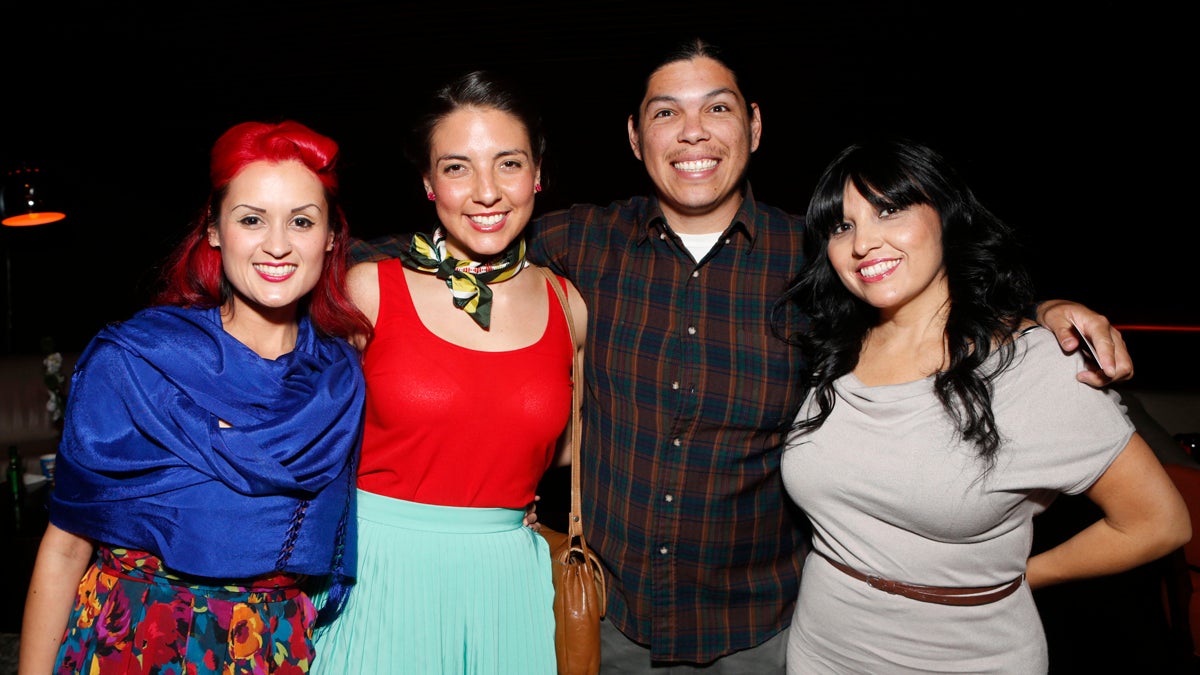Las Cafeteras pair Chicano music with the message of equality and justice for Latinos
Listen
Las Cafeteras pictured in Los Angeles, California in 2012 (Photo by Todd Williamson/Invision for Pantelion/AP Images)
The young musicians of the group Las Cafeteras, the coffee pots, have combined their experience of being born in LA of immigrant parents to create a sort of Chicano protest music.
East Los Angeles, with its mix of generations of Mexican Americans, recent immigrants and rich American music traditions, has been a cauldron for innovative, edgy music activism. The young musicians of the group Las Cafeteras, the coffee pots, have combined their experience of being born in LA of immigrant parents to create a sort of Chicano protest music.
So, when Las Cafeteras perform La Bamba, they are not only pay homage to the Mexican folk root of the song, but also to the Los Angeles Chicano singers who brought the song to rock and roll, from Richie Valens to Los Lobos.
In their La Bamba Rebelde, though, they changed the lyrics to reflect the world they live in today
“The lyrics that I sing in Spanish,” says band member Hector Flores, “Ya no llores llorona, mi gente lucha contra leyes racistas en Arizona’… , which in English means Don’t cry weeping woman, our people are fighting against racist laws in Arizona, I’m not with the border patrol, never was never will be”.
Like most of the members of the six member Las Cafeteras, Flores, who is in his early thirties, became interested in Chicano culture during his college years, going to marches for demonstrations for equality and justice for Latinos. He noticed how music and dance reinforced the message. So like the other in the band he decided to learn to play traditional Mexican instruments and instruments from many other culture.
“The band’s instrumentation is crazy,” says Flores. “We have a Cajon that’s from Peru, the Box, we have a Marimbol, a large Kalimba that we use as a bass, which is a West African instrument that came through the Caribbean and then to Mexico.”
They use zapateado, tap dancing on wooden boxes for percussion, a variety of string instruments like traditional guitars, mandolins and a wood guitars akin to ukuleles, and also, “we play the quijada de burro which is actually a donkey’s jaw that gives us this great raspy percussive sound. We also use Native American flutes , and gourds.”
The songs speak of longing, their parents journey crossing borders and life in East L.A.; They tell stories of love and struggle and often use social satire to point at political inconsistencies.
Multi-instrumentalist and singer Denise Carlos sees the band’s work as a collective endeavor and for her “music makes sense as a way to provoke a dialogue on present social and political issues. You don’t always have to talk politics.” Carlos ads, “if you are singing it in a very fun way, you hear the beat, you dance to it, but the words start meaning something to you.”
After their performances in Philadelphia the band will continue touring and teaching workshops at universities and community centers across the country. But, as the saying goes, you don’t have to be Latino to get the music; their energy, mix of languages and musical references to blues, hip hop, punk rock and Latin American folk, gets the Las Cafeteras message across.
After all says Hector Carlos “we sing in five languages: English. Spanish, Spanglish, Justice and Love”
WHYY is your source for fact-based, in-depth journalism and information. As a nonprofit organization, we rely on financial support from readers like you. Please give today.

